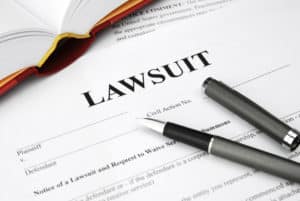Understanding the Statute of Limitations in California
Home » Personal Injury Resources » Understanding the Statute of Limitations in California

After an injury or accident, you might consider filing a lawsuit against the party who caused your injury. However, if you do not file the lawsuit before the California statute of limitations expires, you will give up your right to pursue a claim in court.
That means you cannot recover compensation for economic and non-economic damages. You could be responsible for thousands of dollars in medical bills and other damages if you miss the deadline. Personal injury lawyers recommend consulting with a legal expert to ensure you don’t miss this deadline.
Table of Contents
What is a Statute of Limitations and Why Do They Exist in California?

A civil statute of limitations bars claims filed after a specific period of time after an accident or injury. Civil actions filed after the statute of limitations expire may be dismissed.
California’s statutes of limitations apply to all types of cases based on personal injuries. In addition, the California Penal Code also sets statutes of limitation for filing criminal charges.
The state imposes deadlines to file civil actions for several reasons. First, a deadline to file in court encourages parties to file complaints quickly. Delaying the filing of a lawsuit means evidence could be lost or destroyed. Filing prompt lawsuits helps ensure that juries decide personal injury cases on the best available evidence.
Also, deadlines for filing personal injury lawsuits prevent individuals from using the court system to litigate an old matter by setting a time limit to file the claim. It gives defendants the peace of mind that they cannot be sued after the statute of limitations expires.
What is the Statute of Limitations for California Personal Injury Claims?
Statutes of limitations may vary depending on the type of personal injury case, the parties involved, and other factors.
The statute of limitations in California is two years from the date of the injury for most personal injury cases.
The two-year deadline applies in most injury cases, including:
Property damage claims have a three-year filing deadline. However, most claims related to property damage are settled before the claim for personal injury.
California Medical Malpractice Statute of Limitations
The statute of limitations for medical malpractice claims in California is three years from the date of the malpractice OR within one year from the date the plaintiff discovered the injury, whichever date comes first. However, there are exceptions to this rule.
The medical malpractice filing deadline can be tolled (paused) in three instances:
- For minor victims
- When a health care provider leaves a foreign object in a patient’s body
- The medical professional committed some form of misconduct
Claims for malpractice involving children must be filed three years after the date of injury or before the child’s eighth birthday if the malpractice occurred when the child was under the age of six, whichever is later.
The deadline for filing a claim for a foreign object being left in your body is one year from the date you discover the object.
California Wrongful Death Statute of Limitations
Generally, the statute of limitations for wrongful death claims is two years from the person’s death. However, there could be exceptions in cases involving medical malpractice or a minor suing for a parent’s death.
The time period begins upon the person’s death. Therefore, if a person survives a car accident and dies four months later, the statute of limitations for the wrongful death claim would begin running four months after the car crash when the person died.
California Statute of Limitations for Government Lawsuits
The deadline for filing claims against government agencies is different. First, the government entity must give you permission to sue it under the legal theory of sovereign immunity. California waived sovereign immunity for most personal injury cases.
According to the California Tort Claims Act, you must file your administrative claim with the government agency within six months from the date of injury. The administrative claim must be filed with the government agency before you file a claim in court. The claim must include specific information and must be filed according to the rules set forth in the statute.
The government agency has 45 days to respond to your claim. If it denies your claim, you have six months from the denial date to file a lawsuit in court. If the government does not respond, you have two years from the injury date to file a claim in court.
What is the Discovery Rule?
The discovery rule tolls (delays) the deadline for filing a personal injury lawsuit. Instead of beginning on the date of the injury, the time to file a lawsuit begins with the date the person discovered or should have reasonably discovered the injury.
The plaintiff must prove:
- They did not discover the injury until later, and they did not have the facts that would have led a reasonable person to suspect another party’s wrongful act had harmed them; OR,
- They did not discover the injury until later, and an investigation with reasonable diligence would not have uncovered the factual basis for the harm sustained by the plaintiff.
If the plaintiff had a reason to suspect they sustained harm because of another person’s wrongdoing, they should have “discovered” the injury. Therefore, when the person suspects something is wrong, they “discover” their injury for purposes of the discovery rule and the statute of limitations.
It can be difficult to prove that a person did not discover an injury until later. Therefore, it is wise to seek legal counsel as soon as you believe you might have sustained an injury, even if you do not know who caused the injury. You could run out of time to file a personal injury lawsuit if you do not act quickly.
Schedule a Free Consultation with a Los Angeles Personal Injury Lawyer
Avoid problems with the statutes of limitations by seeking legal advice as soon as possible after an injury or accident. We offer free consultations and case evaluations. Contact us to set up your free appointment with an experienced personal injury attorney in Los Angeles, CA.
